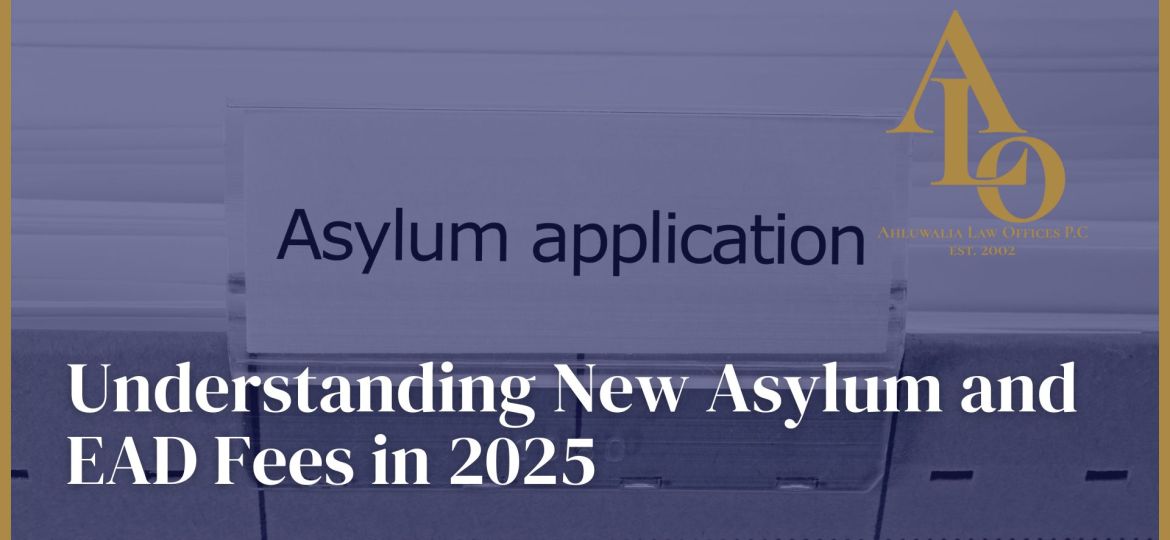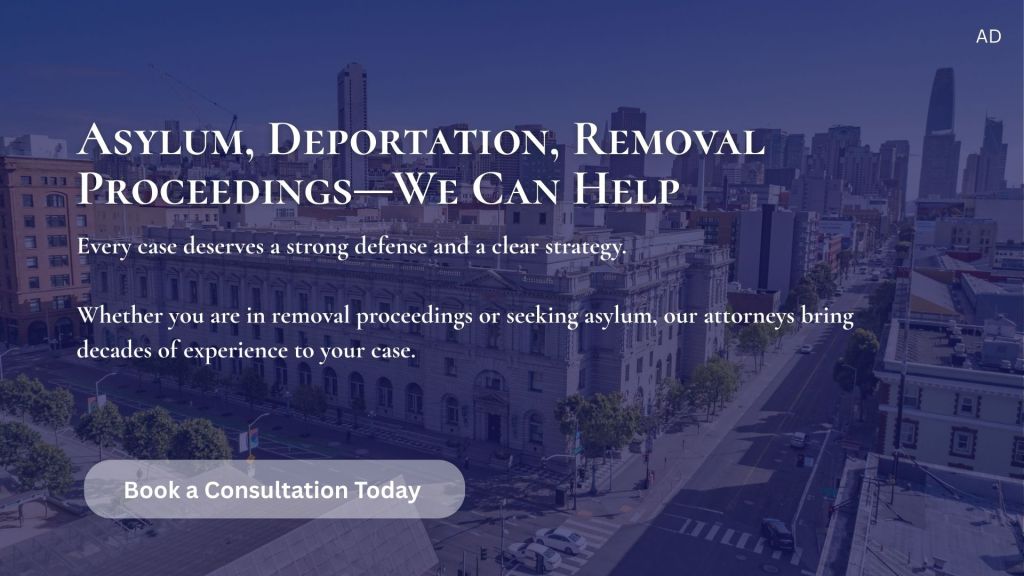
Foreign nationals applying for asylum in the United States now face significant fee changes under H.R.1 (the “One Big Beautiful Bill Act”), effective July 22, 2025. Both the U.S. Citizenship and Immigration Services (USCIS) and the Executive Office for Immigration Review (EOIR) require strict compliance with the new rules. Applicants should monitor deadlines closely, as filings without the correct fees will not move forward.
New Asylum Application Fees
- Initial Filing Fee: Applicants must now pay a $100 fee with Form I-589, Application for Asylum and Withholding of Removal. This fee is mandatory.
- Annual Fee: An additional $100 applies to any application pending for one year or longer. This charge is also mandatory.
Defensive Applications in Court:
On September 23, 2025, EOIR activated its online payment system for the $100 initial asylum fee. The system does not yet process the annual fee. Judges around the country have handled the missing fee differently—some threatened to dismiss applications, while others issued orders to show cause.
EOIR guidance also suggests the fee may extend to related relief, such as withholding of removal and protection under the Convention Against Torture. However, 8 CFR §1103.7(b)(ii) confirms that no fee applies when Form I-589 is used only for those claims.
USCIS Applications:
USCIS currently accepts the $100 fee by check, money order, credit card, or ACH transfer. Starting October 28, 2025, applicants must use electronic payments, as checks and money orders will no longer be an option. USCIS will issue personal notices to explain how and when the annual fee must be paid, along with the consequences of nonpayment.
New Employment Authorization Document (EAD) Fees for Asylum Applicants
Asylum seekers applying for work authorization under category (c)(8) face the following charges:
- Initial EAD Fee: $550. No waiver available.
- Renewal EAD Fee: $745 if filed online or $795 if filed by mail. Of this amount, $275 is non-waivable under H.R.1. The remaining $520 portion may qualify for a waiver, but only if filed by mail.
Automatic Termination of Work Authorization
H.R.1 also changes how USCIS and EOIR handle asylum-based work permits:
- Defensive cases: A (c)(8) EAD ends automatically when the court issues a final removal order. The permit also ends if the Board of Immigration Appeals (BIA) affirms a denial.
- Affirmative cases: If USCIS refers the case to EOIR, the EAD stays valid. If USCIS denies the case without referral, the EAD ends immediately, even if the expiration date has not passed.
How Applicants Should Respond
- Pay the correct fee before filing. USCIS will reject applications postmarked after August 21, 2025 if the payment is missing.
- Track EOIR payment portal updates for defensive asylum cases.
- Budget for the non-waivable $275 renewal portion of the (c)(8) EAD fee.
- Prepare for possible early termination of work authorization if the asylum case is denied.
At Ahluwalia Law Offices, we help asylum seekers and employers navigate these new requirements. Missing a fee or payment deadline can result in case dismissal or loss of work authorization.
If you are in the U.S. with a pending asylum application or an asylum-based EAD, contact our office to review your compliance obligations under H.R.1.


